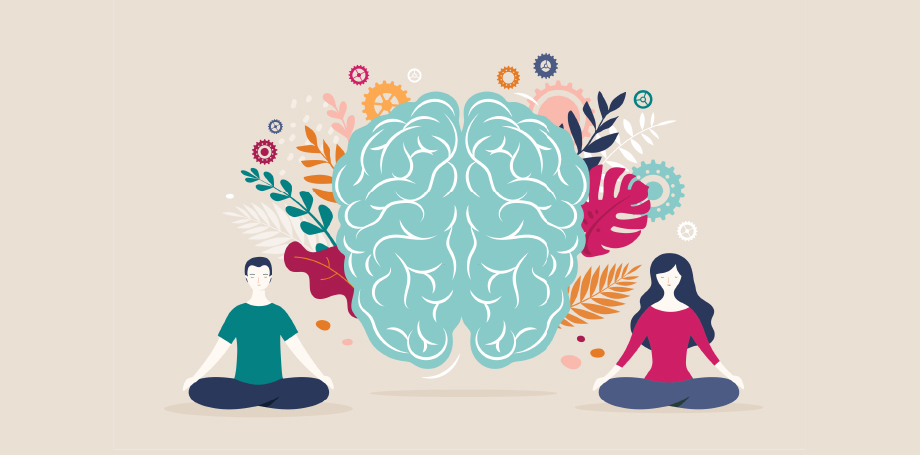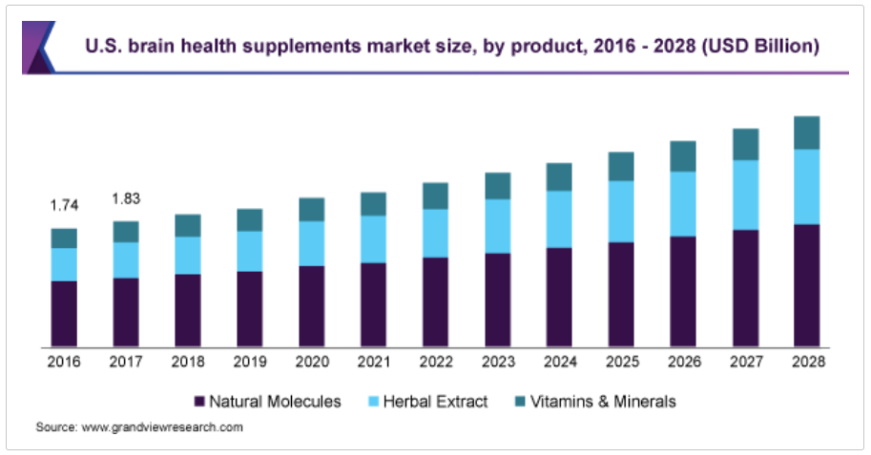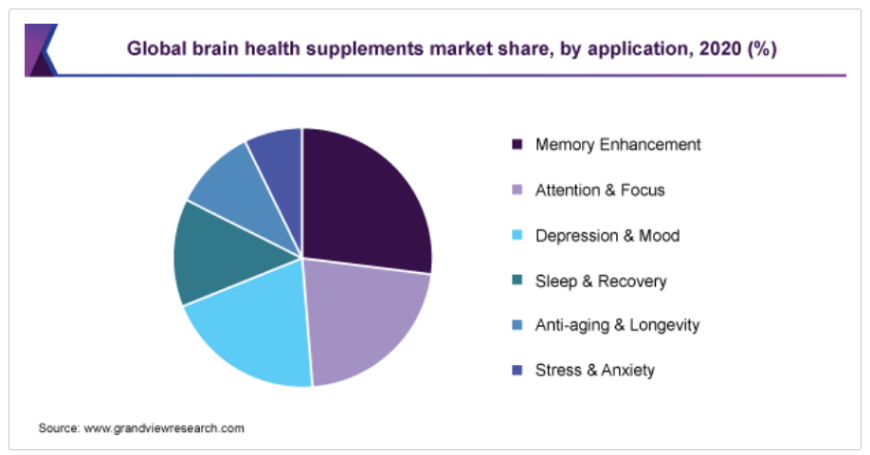Cognitive Health – Boosting the health of the brain
20
Jan

Consumers’ awareness about their mental wellbeing, in particular cognitive health, is growing and, with it, so is the demand for solutions for improving cognitive function. Supplying the brain with the right nutrients helps oneself to remain productive and relaxed.
The ongoing pandemic is showing its impact in the form of increased mental stress and, with it, decreased cognitive health. Products that help achieve a healthy balance between productivity and calmness and which increase cognitive function are enjoying increasing popularity.
This is also reflected in the Mintel trend report “Global Food & Drink Trend 2021 Feed The Mind”, which highlights the potential of nootropic and adaptogenic products that can positively influence the central nervous system and offer consumers solutions for improving their mental and emotional health.
Market observations show that there are many products for increasing cognitive function to be found on the market.
Market trend
The global market for brain health supplements was valued at USD 7.21 billion in 2020, and is estimated to grow by 8% each year on average until 2028.
Consumers’ increasing interest in improving and maintaining brain health has already been driving product demand worldwide. In addition, the growing number of promotional activities and the increasing eagerness to improve brain function are positively impacting the growth of the market. Furthermore, the easy availability of over-the-counter products in physical and online stores will continue to boost sales in the coming years.

Taking a look at applications in the brain health supplements segment, one can see that products for enhancing memory made up the largest share of cognitive performance enhancers in 2020, at more than 25%.
The growing concern about dementia among older people has increased the acceptance of memory-enhancing products. According to data published by the WHO in September 2020, nearly 50 million people across the world have dementia. Alzheimer’s disease accounts for 60–70% of these dementia cases. The most popular types of memory enhancement supplements include omega-3 fatty acids, green tea, turmeric/curcumin, ginseng root, and bacopa.

It can further be expected that the increasing rate of depression among millennials will continue to fuel the growth of the “depression and mood” segment strongly until 2028. According to the WHO, 264 million people over the world suffer from depression. The growing awareness regarding mental health and depression in countries like India and Indonesia will accelerate the adoption of such supplements even more.
Optimizing brain energy and cognitive function
In relation to “cognitive health”, there are two substances we hear of repeatedly, whose consumption has proven to have an effect on cognitive function. We discuss these two substances in more detail in the following section.
Phosphatidylserine – for brain fitness
As a phospholipid and a component of biological membranes, phosphatidylserine plays a key role in cell communication. In the human body, phosphatidylserine occurs above all on the inside of cell membranes, where it modulates the activity of protein channels and receptors.
50 percent of the body’s endogenous phosphatidylserine is found in the brain. There, it supports the synthesis of neurotransmitters, sends and receives electrical impulses, and allows nutrients and oxygen to gain access to the brain cells. At the same time, it prevents harmful substances from entering the brain cells and promotes communication with the immune system.
With age, the amount of phosphatidylserine in the body decreases and, over time, results in cognitive decline, which can be observed as a worsening memory, poor concentration, or attention deficits.
Although a phosphatidylserine deficiency is mostly associated with age-related cognitive decline, it is important to maintain phosphatidylserine levels in all age groups, to benefit from its positive action in maintaining and improving cognitive function.
Studies show that phosphatidylserine obtained naturally, from soy for example, can slow down, halt, or even reverse cognitive decline when taken daily. In suspected Alzheimer’s cases, especially, improvements in many aspects of cognitive performance have been observed.
Phosphatidylcholine – for maintaining brain function
The human brain is nearly 60% lipids, and maintaining the correct balance of phospholipids in cell membranes is crucial for cognitive function.
Phosphatidylcholine (PC) is a phospholipid bound to a choline particle and, as a main constituent of neuronal membranes, is indispensable for their fluidity and integrity.
Studies show that taking phosphatidylcholine increases levels of acetylcholine, a neurotransmitter that is heavily involved in memory function. In all of these ways, phosphatidylcholine supports the health of brain cells.
A dietary intake of phosphatidylcholine can help in the case of mild age-related cognitive decline and in maintaining healthy brain function.
Literature:
- Mintel, 28 of October 2021/Insight: Nutrition watch: Cognitive Health in APAC
- www.grandviewresearch.com/industry-analysis/brain-health-supplements-market

Claudia Dür
Social Media Manager
Stories - Nature - Movement. These three words have the greatest meaning in my life.
As a passionate communicator, I am responsible for social media at IMPAG. In addition, I write various contents for our communication activities in the area of personal care. I love stories, constructive exchange, open discussions and teamwork. In my spare time you meet me and my family always in motion, be it biking, climbing and hiking in the mountains or surfing in the waves of the Atlantic.


Comments are disabled for this post.